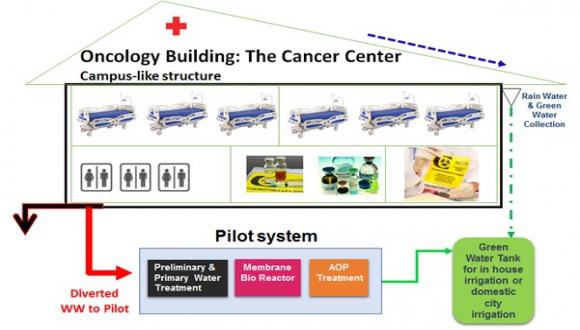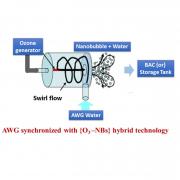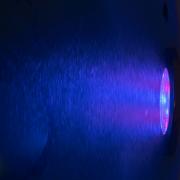Hospital Wastewater Treatment at Source
Hospital wastewater are one of the point sources of various micro-organic persistent and toxic contaminants, secreted by the hospitalized patients. Pharmaceutical residues are part of a group of persistent and toxic micro-organic contaminants that flows into the water-treatment plants from hospitals, industry, agriculture and domestic sector. These contaminants are resistant to conventional biological treatment used as a secondary treatment and as a result, the effluents that comes out from WWTP despite their high quality, contain residues of drugs that have been proven to be carcinogenic. In this study, we treat the chemotherapy pharmaceutical residues in the source, in that way, we decrease their concentration in the effluent.
The objective of this study is to promote local and efficient treatment of wastewater in hospitals in Israel and abroad before discharging them into the municipal WWTP. This will improve the quality of Israel's water sector, which is based in part on reclaimed water for irrigation purposes and will prevent an environmental pollution of the water sources.
Advanced treatment technologies will be carried out in the research to reduce effluent contamination: multi-stage biological decomposition including carbon, phosphorus and nitrogen reduction in ventilated, semi-ventilated and non-ventilated ventilates, physical removal by ceramic membrane and advanced ozone oxidation.





